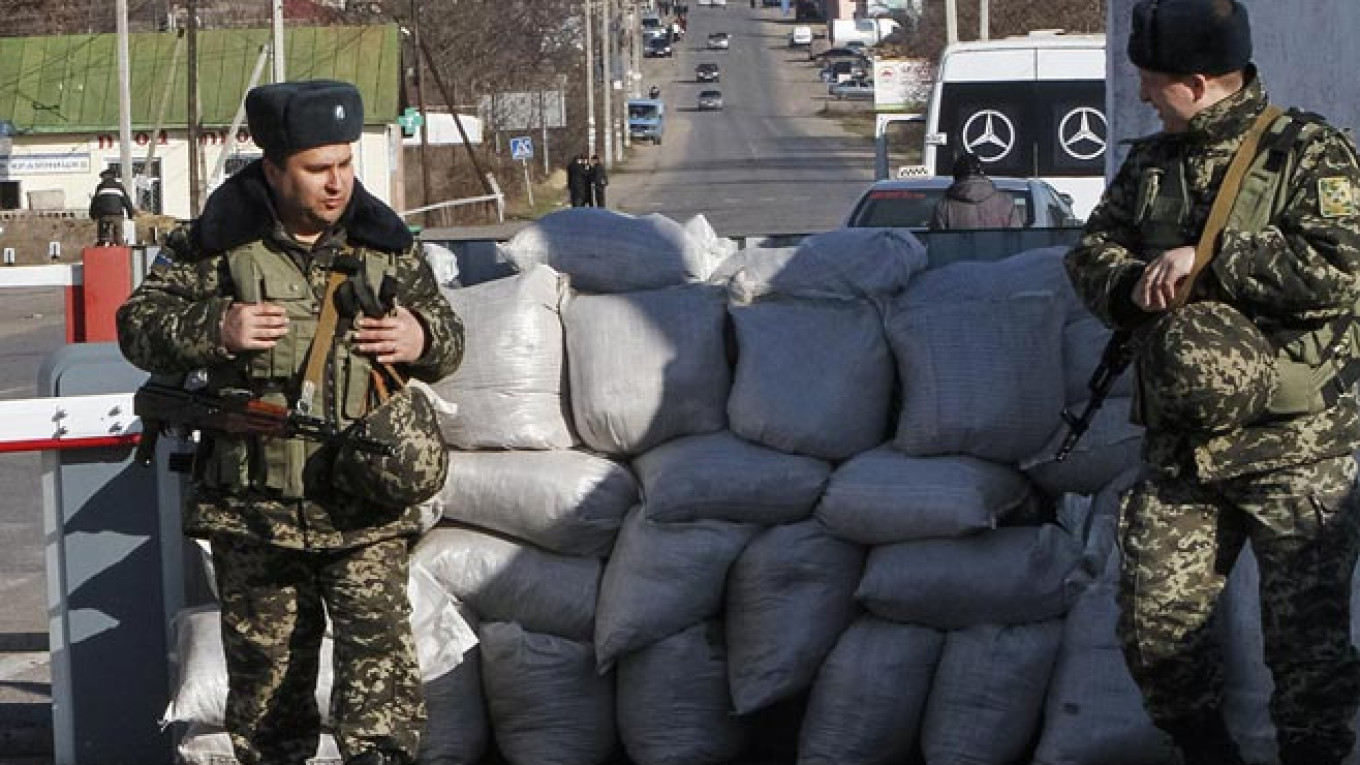A top European Union official on Tuesday challenged President Vladimir Putin's statement about a blockade of Moldova's pro-Kremlin self-proclaimed republic of Transdnestr by Ukraine, saying border guards had confirmed that customs procedures were being conducted as usual.
Pirkka Tapiola, head of the EU delegation to Moldova, said he had personally met with the head of the agency in charge of monitoring the Moldovan-Ukrainian border — the EU Border Assistance Mission to Ukraine and Moldova — and received assurances that there was no such blockade.
"On the part of Ukraine, control over crossing the border has only been tightened slightly, although that is perfectly understandable, since Russian troops are located in Transdnestr," Tapiola said, Radio Free Europe reported Tuesday.
Putin had brought up the issue of a blockade in a telephone conversation regarding the situation in Ukraine with German Chancellor Angela Merkel on Monday evening, saying that measures must be taken to remove the supposed blockade and that all sides should seek a comprehensive solution to the problem.
Foreign Minister Sergei Lavrov also warned of a blockade in a conversation with U.S. Secretary of State John Kerry on Sunday, saying Russia had concerns over "the steps being taken by the current Ukrainian leadership regarding the freedom of movement and rights of Transdnestr."
The statements were a cause for concern for many European leaders who fear that Russia is hoping to claim formerly Soviet territories under the pretext of protecting ethnic Russians.
The concerns being voiced by Russian leaders over Russian speakers in Transdnestr parallel those expressed ahead of Russia's takeover and subsequent annexation of Crimea and Sevastopol, a move that has angered the West and prompted tit-for-tat sanctions.
Last week, Russia held military drills in Transdnestr, amid warnings from NATO's top military commander that Russia may harbor plans to claim the territory.
A similar warning came from Moldovan Prime Minister Iurie Leanca, who complained last week of "provocations" in Transdnestr and said the events in Crimea might trigger negative events in Moldova.
Contact the author at a.quinn@imedia.ru
A Message from The Moscow Times:
Dear readers,
We are facing unprecedented challenges. Russia's Prosecutor General's Office has designated The Moscow Times as an "undesirable" organization, criminalizing our work and putting our staff at risk of prosecution. This follows our earlier unjust labeling as a "foreign agent."
These actions are direct attempts to silence independent journalism in Russia. The authorities claim our work "discredits the decisions of the Russian leadership." We see things differently: we strive to provide accurate, unbiased reporting on Russia.
We, the journalists of The Moscow Times, refuse to be silenced. But to continue our work, we need your help.
Your support, no matter how small, makes a world of difference. If you can, please support us monthly starting from just $2. It's quick to set up, and every contribution makes a significant impact.
By supporting The Moscow Times, you're defending open, independent journalism in the face of repression. Thank you for standing with us.
Remind me later.


